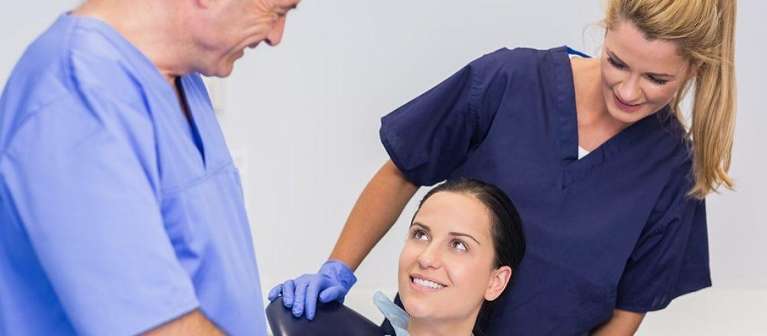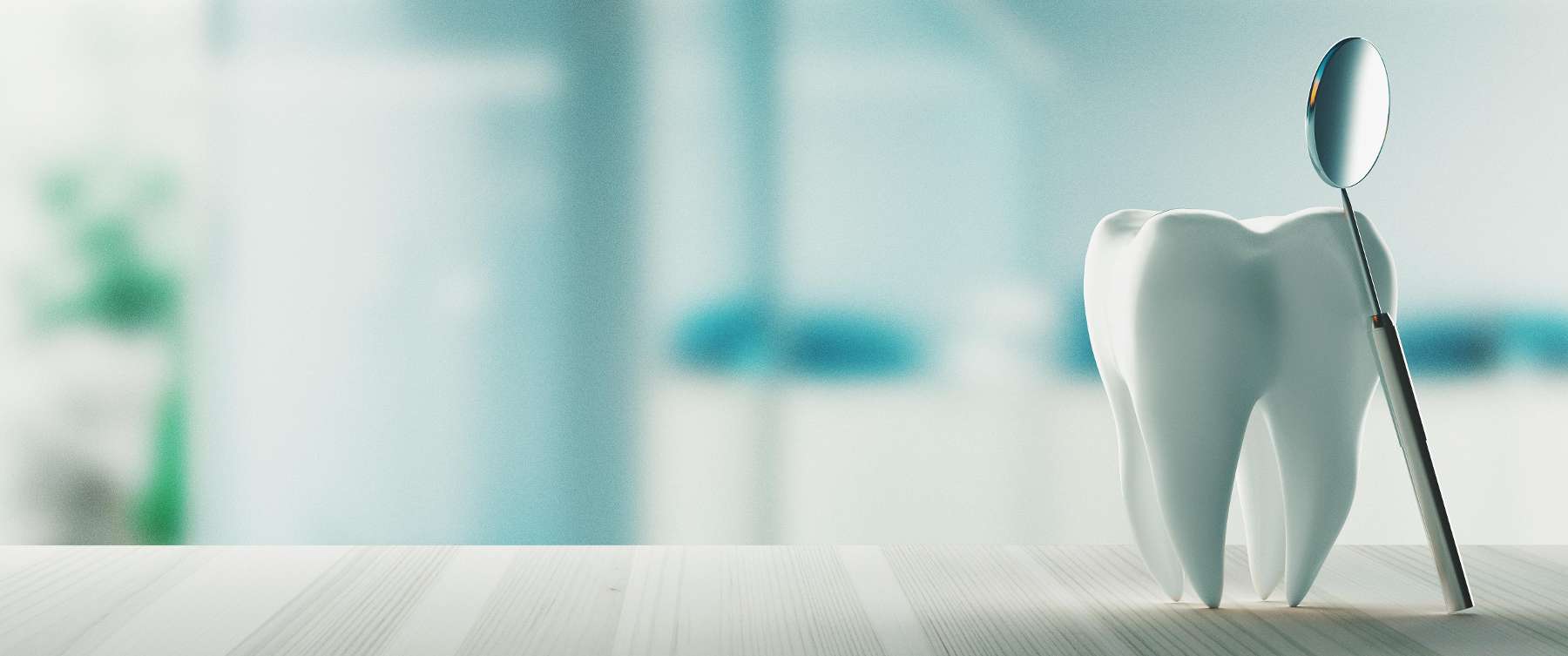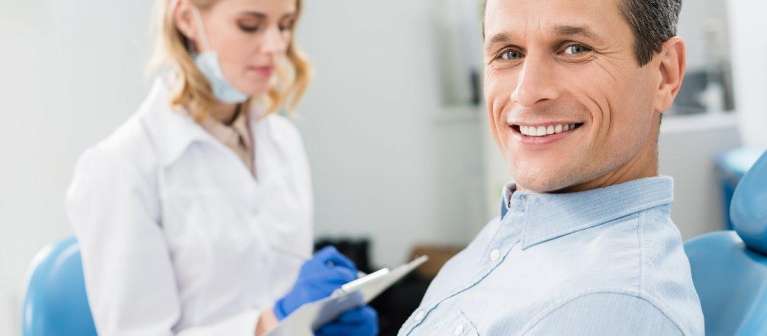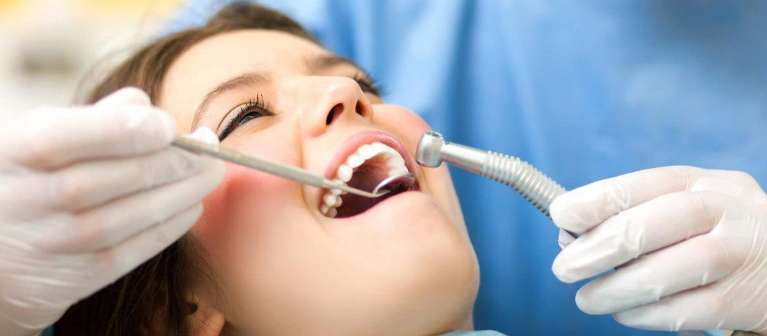
Dental exams and cleanings are a vital part of your oral care. They help us to catch any problems early and nip them in the bud before they have a chance to cause serious and painful problems. We suggest that patients visit us twice a year for dental exams and cleans.
What does a dental exam involve?
A comprehensive dental exam will be performed by the dentist at your initial dental visit. During subsequent visits you will receive regular check-up exams, which include the following:
- Examination of diagnostic X-rays: X-rays are essential for detection of decay, tumors, cysts, and bone loss. X-rays also help determine tooth and root positions.
- Examination for tooth decay: All tooth surfaces will be checked for decay with special dental instruments.
- Examination of existing restorations: We check any fillings, crowns, or other restorative work you have had done in order to determine whether it is in good repair or requires replacement.
- Gum disease evaluation: We examine the gums and bone around the teeth for any signs of periodontal disease.
- Intra-Oral screening: We check the face, neck, lips, tongue, throat, tissues, and gums for any signs of oral cancer.
- Gum disease evaluation: We examine the gums and bone around the teeth for any signs of periodontal disease.
- Professional dental cleaning: We will perform a comprehensive cleaning which involves the removal of plaque, tartar, and a polish.
What to expect on my first dental visit?
When you arrive early for your first visit, you will be greeted warmly by our caring staff.
Your initial visit will provide a friendly, caring introduction to our dental home where lifelong relationships begin.
The initial time spent with you will include but not be limited to homecare instructions, nutrition counselling, orthodontic evaluation as well as a comprehensive exam that will outline existing dental concerns.
What does a professional dental clean involve?
Professional dental cleans are usually performed by the dentist. Your cleaning appointment will include:
- Removal of plaque: Plaque is a sticky, almost invisible film that forms on the teeth. It is actually a living, growing colony of bacteria that feed on food debris on the tooth surface and sometimes beneath the gum line. As they feed, the bacteria produce toxins that inflame the gums and cause periodontal disease.
- Removal of tartar: Tartar is hardened plaque that has been left on the tooth for some time and is now firmly attached to the tooth surface. Tartar forms above and below the gum line, and can only be removed with special dental instruments.
- Teeth polishing: Your dentist will also use special polishing equipment to remove stains and plaque that was not already removed during tooth brushing and scaling.





